Deck 4: Exponential and Logarithmic Functions
Question
Question
Question
Question
Question
Question
Question
Question
Question
Question
Question
Question
Question
Question
Question
Question
Question
Question
Question
Question
Question
Question
Question
Question
Question
Question
Question
Question
Question
Question
Question
Question
Question
Question
Question
Question
Question
Question
Question
Question
Question
Question
Question
Question
Question
Question
Question
Question
Question
Question
Question
Question
Question
Question
Question
Question
Question
Question
Question
Question
Question
Question
Question
Question
Question
Question
Question
Question
Question
Question
Question
Question
Question
Question
Question
Question
Question
Question
Question
Question

Unlock Deck
Sign up to unlock the cards in this deck!
Unlock Deck
Unlock Deck
1/203
Play
Full screen (f)
Deck 4: Exponential and Logarithmic Functions
1
Graph the function.
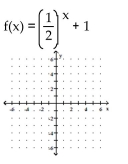
A)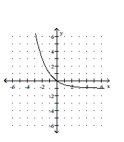
B)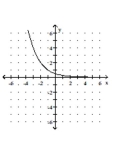
C)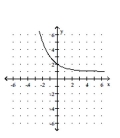
D)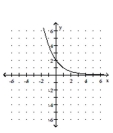

A)

B)

C)

D)


2
Find the function value.
Let f(x) = . Find f(-1).
. Find f(-1).
A)
B)
C) 1
D) -4
Let f(x) =
 . Find f(-1).
. Find f(-1).A)

B)

C) 1
D) -4

3
Find the function value.
Let f(x) = . Find f(3).
. Find f(3).
A) 18
B) 729
C) 46,656
D) 216
Let f(x) =
 . Find f(3).
. Find f(3).A) 18
B) 729
C) 46,656
D) 216
216
4
Find the function value.
Let f(x) = . Find f(-1).
. Find f(-1).
A)
B) 4
C)
D) -4
Let f(x) =
 . Find f(-1).
. Find f(-1).A)

B) 4
C)

D) -4

Unlock Deck
Unlock for access to all 203 flashcards in this deck.
Unlock Deck
k this deck
5
Evaluate the exponential expression.

A) 9
B) 3
C)
D) 27

A) 9
B) 3
C)

D) 27

Unlock Deck
Unlock for access to all 203 flashcards in this deck.
Unlock Deck
k this deck
6
Use a graph or a table to find the limit.

A)
B) 100
C) 1
D)

A)

B) 100
C) 1
D)


Unlock Deck
Unlock for access to all 203 flashcards in this deck.
Unlock Deck
k this deck
7
Graph the function.
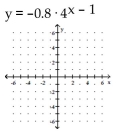
A)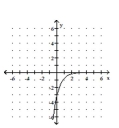
B)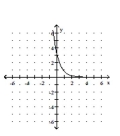
C)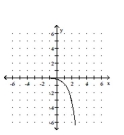
D)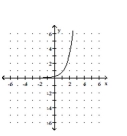

A)

B)

C)

D)


Unlock Deck
Unlock for access to all 203 flashcards in this deck.
Unlock Deck
k this deck
8
Use a graph or a table to find the limit.

A)
B) 10
C)
D) 0

A)

B) 10
C)

D) 0

Unlock Deck
Unlock for access to all 203 flashcards in this deck.
Unlock Deck
k this deck
9
Find the function value.
Let f(x) = Find f(3).
Find f(3).
A)
B) -8
C)
D) 16
Let f(x) =
 Find f(3).
Find f(3).A)

B) -8
C)

D) 16

Unlock Deck
Unlock for access to all 203 flashcards in this deck.
Unlock Deck
k this deck
10
Graph the function.
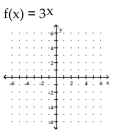
A)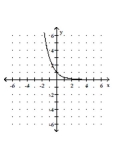
B)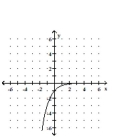
C)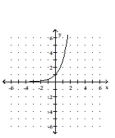
D)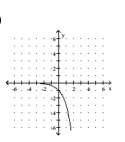

A)

B)

C)

D)


Unlock Deck
Unlock for access to all 203 flashcards in this deck.
Unlock Deck
k this deck
11
Evaluate the exponential expression.

A) -25
B)
C) 25
D)

A) -25
B)

C) 25
D)


Unlock Deck
Unlock for access to all 203 flashcards in this deck.
Unlock Deck
k this deck
12
Graph the function.
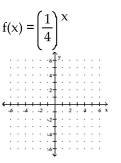
A)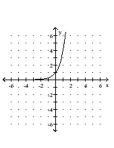
B)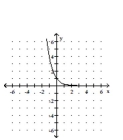
C)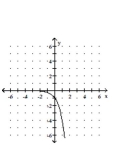
D)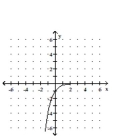

A)

B)

C)

D)


Unlock Deck
Unlock for access to all 203 flashcards in this deck.
Unlock Deck
k this deck
13
Graph the function.
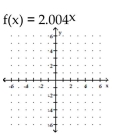
A)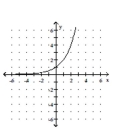
B)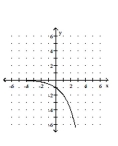
C)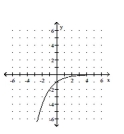
D)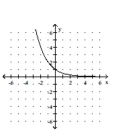

A)

B)

C)

D)


Unlock Deck
Unlock for access to all 203 flashcards in this deck.
Unlock Deck
k this deck
14
Use a graph or a table to find the limit.

A) 100
B)
C) 0
D)

A) 100
B)

C) 0
D)


Unlock Deck
Unlock for access to all 203 flashcards in this deck.
Unlock Deck
k this deck
15
Graph the function.
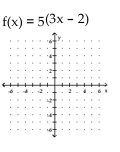
A)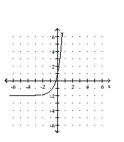
B)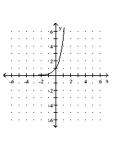
C)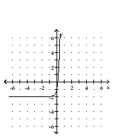
D)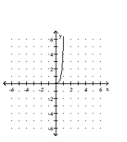

A)

B)

C)

D)


Unlock Deck
Unlock for access to all 203 flashcards in this deck.
Unlock Deck
k this deck
16
Find the function value.
Let f(x) = . Find f(2).
. Find f(2).
A) 9
B)
C)
D)
Let f(x) =
 . Find f(2).
. Find f(2).A) 9
B)

C)

D)


Unlock Deck
Unlock for access to all 203 flashcards in this deck.
Unlock Deck
k this deck
17
Graph the function.
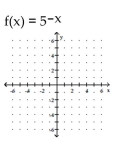
A)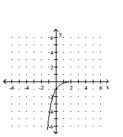
B)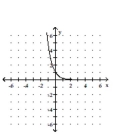
C)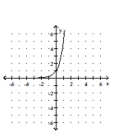
D)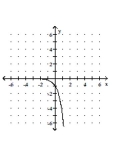

A)

B)

C)

D)


Unlock Deck
Unlock for access to all 203 flashcards in this deck.
Unlock Deck
k this deck
18
Evaluate the exponential expression.

A) 1
B) 0
C) -9
D) -1

A) 1
B) 0
C) -9
D) -1

Unlock Deck
Unlock for access to all 203 flashcards in this deck.
Unlock Deck
k this deck
19
Graph the function.
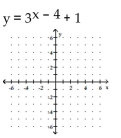
A)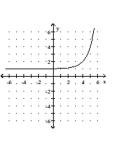
B)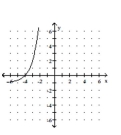
C)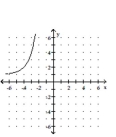
D)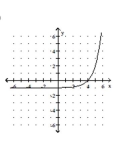

A)

B)

C)

D)


Unlock Deck
Unlock for access to all 203 flashcards in this deck.
Unlock Deck
k this deck
20
Graph the function.
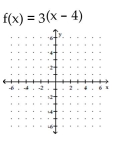
A)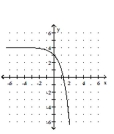
B)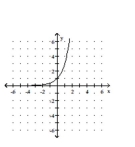
C)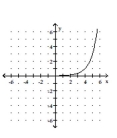
D)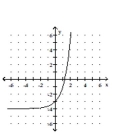

A)

B)

C)

D)


Unlock Deck
Unlock for access to all 203 flashcards in this deck.
Unlock Deck
k this deck
21
Find the value of x.

A) 5
B) -6
C) -5
D) 6

A) 5
B) -6
C) -5
D) 6

Unlock Deck
Unlock for access to all 203 flashcards in this deck.
Unlock Deck
k this deck
22
Fill in the missing coordinate in each ordered pair so that the pair is a solution to the given equation.

A)
B)
C)
D)

A)

B)

C)

D)


Unlock Deck
Unlock for access to all 203 flashcards in this deck.
Unlock Deck
k this deck
23
Find the value of x.
 = 1296
= 1296
A) -5
B) 5
C) 4
D) -4
 = 1296
= 1296A) -5
B) 5
C) 4
D) -4

Unlock Deck
Unlock for access to all 203 flashcards in this deck.
Unlock Deck
k this deck
24
Solve the problem. When needed, use 365 days per year and 30 days per month.
An initial investment of $1000 is appreciated for 7 years in an account that earns 11% interest, compounded annually. Find the amount of money in the account at the end of the period.
A) $2304.54
B) $1076.16
C) $2076.16
D) $1870.41
An initial investment of $1000 is appreciated for 7 years in an account that earns 11% interest, compounded annually. Find the amount of money in the account at the end of the period.
A) $2304.54
B) $1076.16
C) $2076.16
D) $1870.41

Unlock Deck
Unlock for access to all 203 flashcards in this deck.
Unlock Deck
k this deck
25
Solve the equation.

A) {4}
B)
C)
D) {-4}

A) {4}
B)

C)

D) {-4}

Unlock Deck
Unlock for access to all 203 flashcards in this deck.
Unlock Deck
k this deck
26
Solve the problem. When needed, use 365 days per year and 30 days per month.
An initial investment of $1000 is appreciated for 5 years in an account that earns 12% interest, compounded semiannually. Find the amount of money in the account at the end of the period.
A) $1762.34
B) $790.85
C) $1689.48
D) $1790.85
An initial investment of $1000 is appreciated for 5 years in an account that earns 12% interest, compounded semiannually. Find the amount of money in the account at the end of the period.
A) $1762.34
B) $790.85
C) $1689.48
D) $1790.85

Unlock Deck
Unlock for access to all 203 flashcards in this deck.
Unlock Deck
k this deck
27
Solve the equation.

A) {5}
B) {3}
C) {-4}
D) {4}

A) {5}
B) {3}
C) {-4}
D) {4}

Unlock Deck
Unlock for access to all 203 flashcards in this deck.
Unlock Deck
k this deck
28
Solve the problem.
The amount of particulate matter left in solution during a filtering process is given by the equation where n is the number of filtering steps. Find the amounts left for n = 0 and n = 5. (Round to the nearest whole number.)
where n is the number of filtering steps. Find the amounts left for n = 0 and n = 5. (Round to the nearest whole number.)
A) 300; 9
B) 300; 19
C) 600; 19
D) 300; 4800
The amount of particulate matter left in solution during a filtering process is given by the equation
 where n is the number of filtering steps. Find the amounts left for n = 0 and n = 5. (Round to the nearest whole number.)
where n is the number of filtering steps. Find the amounts left for n = 0 and n = 5. (Round to the nearest whole number.)A) 300; 9
B) 300; 19
C) 600; 19
D) 300; 4800

Unlock Deck
Unlock for access to all 203 flashcards in this deck.
Unlock Deck
k this deck
29
Solve the equation.

A)
B) {-3}
C)
D) {3}

A)

B) {-3}
C)

D) {3}

Unlock Deck
Unlock for access to all 203 flashcards in this deck.
Unlock Deck
k this deck
30
Solve the problem. When needed, use 365 days per year and 30 days per month.
What principal invested at 8% compounded continuously for 4 years will yield $1190? Round the answer to two decimal places.
A) $864.12
B) $1188.62
C) $627.48
D) $1638.78
What principal invested at 8% compounded continuously for 4 years will yield $1190? Round the answer to two decimal places.
A) $864.12
B) $1188.62
C) $627.48
D) $1638.78

Unlock Deck
Unlock for access to all 203 flashcards in this deck.
Unlock Deck
k this deck
31
Solve the problem. When needed, use 365 days per year and 30 days per month.
An initial investment of $480 is appreciated for 9 years in an account that earns 18% interest, compounded quarterly. Find the amount of money in the account at the end of the period.
A) $2129.02
B) $2240.33
C) $2341.14
D) $1861.14
An initial investment of $480 is appreciated for 9 years in an account that earns 18% interest, compounded quarterly. Find the amount of money in the account at the end of the period.
A) $2129.02
B) $2240.33
C) $2341.14
D) $1861.14

Unlock Deck
Unlock for access to all 203 flashcards in this deck.
Unlock Deck
k this deck
32
Solve the problem. When needed, use 365 days per year and 30 days per month.
An initial investment of $12,000 is appreciated for 5 years in an account that earns 4% interest, compounded quarterly. Find the amount of money in the account at the end of the period.
A) $14,599.83
B) $2642.28
C) $14,642.28
D) $14,497.31
An initial investment of $12,000 is appreciated for 5 years in an account that earns 4% interest, compounded quarterly. Find the amount of money in the account at the end of the period.
A) $14,599.83
B) $2642.28
C) $14,642.28
D) $14,497.31

Unlock Deck
Unlock for access to all 203 flashcards in this deck.
Unlock Deck
k this deck
33
Write the equation of the graph in its final position.
The graph of y = is translated 9 units to the right, reflected in the y-axis, and then translated 4 units downward.
is translated 9 units to the right, reflected in the y-axis, and then translated 4 units downward.
A)
B)
C)
D)
The graph of y =
 is translated 9 units to the right, reflected in the y-axis, and then translated 4 units downward.
is translated 9 units to the right, reflected in the y-axis, and then translated 4 units downward.A)

B)

C)

D)


Unlock Deck
Unlock for access to all 203 flashcards in this deck.
Unlock Deck
k this deck
34
Solve the problem. When needed, use 365 days per year and 30 days per month.
An initial investment of $480 is appreciated for 8 years in an account that earns 2% interest, compounded continuously. Find the amount of money in the account at the end of the period.
A) $616.33
B) $1820.96
C) $26,207.11
D) $563.29
An initial investment of $480 is appreciated for 8 years in an account that earns 2% interest, compounded continuously. Find the amount of money in the account at the end of the period.
A) $616.33
B) $1820.96
C) $26,207.11
D) $563.29

Unlock Deck
Unlock for access to all 203 flashcards in this deck.
Unlock Deck
k this deck
35
Solve the equation.

A) {4}
B)
C) {-4}
D)

A) {4}
B)

C) {-4}
D)


Unlock Deck
Unlock for access to all 203 flashcards in this deck.
Unlock Deck
k this deck
36
Solve the equation.

A) {8}
B)
C) {-3}
D) {3}

A) {8}
B)

C) {-3}
D) {3}

Unlock Deck
Unlock for access to all 203 flashcards in this deck.
Unlock Deck
k this deck
37
Write the equation of the graph in its final position.
The graph of y = is translated 7 units to the right and then 3 units upward.
is translated 7 units to the right and then 3 units upward.
A)
B)
C)
D)
The graph of y =
 is translated 7 units to the right and then 3 units upward.
is translated 7 units to the right and then 3 units upward.A)

B)

C)

D)


Unlock Deck
Unlock for access to all 203 flashcards in this deck.
Unlock Deck
k this deck
38
Solve the equation.

A) {3}
B)
C)
D) {-3}

A) {3}
B)

C)

D) {-3}

Unlock Deck
Unlock for access to all 203 flashcards in this deck.
Unlock Deck
k this deck
39
Solve the problem. When needed, use 365 days per year and 30 days per month.
An initial investment of $14,000 is appreciated for 3 years in an account that earns 14% interest, compounded semiannually. Find the amount of money in the account at the end of the period.
A) $19,635.72
B) $21,010.22
C) $7010.22
D) $20,741.62
An initial investment of $14,000 is appreciated for 3 years in an account that earns 14% interest, compounded semiannually. Find the amount of money in the account at the end of the period.
A) $19,635.72
B) $21,010.22
C) $7010.22
D) $20,741.62

Unlock Deck
Unlock for access to all 203 flashcards in this deck.
Unlock Deck
k this deck
40
Fill in the missing coordinate in each ordered pair so that the pair is a solution to the given equation.

A)
B)
C)
D)

A)

B)

C)

D)


Unlock Deck
Unlock for access to all 203 flashcards in this deck.
Unlock Deck
k this deck
41
Find the value of the logarithmic function.
log(0.001)
A) -2
B) -3
C) 0
D) 3
log(0.001)
A) -2
B) -3
C) 0
D) 3

Unlock Deck
Unlock for access to all 203 flashcards in this deck.
Unlock Deck
k this deck
42
Find the value of the logarithmic function.

A)
B)
C)
D)

A)

B)

C)

D)


Unlock Deck
Unlock for access to all 203 flashcards in this deck.
Unlock Deck
k this deck
43
Solve the problem.
The number of dislocated electric impulses per cubic inch in a transformer when lightning strikes is given by , where x is the time in milliseconds of the lightning strike. Find the number of dislocated impulses at x = 0 and x = 3.
, where x is the time in milliseconds of the lightning strike. Find the number of dislocated impulses at x = 0 and x = 3.
A) 7100; 85,200
B) 7100; 454,400
C) 7100; 1,817,600
D) 28,400; 454,400
The number of dislocated electric impulses per cubic inch in a transformer when lightning strikes is given by
 , where x is the time in milliseconds of the lightning strike. Find the number of dislocated impulses at x = 0 and x = 3.
, where x is the time in milliseconds of the lightning strike. Find the number of dislocated impulses at x = 0 and x = 3.A) 7100; 85,200
B) 7100; 454,400
C) 7100; 1,817,600
D) 28,400; 454,400

Unlock Deck
Unlock for access to all 203 flashcards in this deck.
Unlock Deck
k this deck
44
Find the value of the logarithmic function.

A) -49
B) 3
C) 49
D) -3

A) -49
B) 3
C) 49
D) -3

Unlock Deck
Unlock for access to all 203 flashcards in this deck.
Unlock Deck
k this deck
45
Determine the number that can be used in place of the question mark to make the equation true.

A) 2
B)
C) No solution
D) -2

A) 2
B)

C) No solution
D) -2

Unlock Deck
Unlock for access to all 203 flashcards in this deck.
Unlock Deck
k this deck
46
Solve the problem.
The number of bacteria growing in an incubation culture increases with time according to where x is time in days. Find the number of bacteria when x = 0 and x = 4.
where x is time in days. Find the number of bacteria when x = 0 and x = 4.
A) 2000; 6,250,000
B) 2000; 40,000
C) 10,000; 1,250,000
D) 2000; 1,250,000
The number of bacteria growing in an incubation culture increases with time according to
 where x is time in days. Find the number of bacteria when x = 0 and x = 4.
where x is time in days. Find the number of bacteria when x = 0 and x = 4.A) 2000; 6,250,000
B) 2000; 40,000
C) 10,000; 1,250,000
D) 2000; 1,250,000

Unlock Deck
Unlock for access to all 203 flashcards in this deck.
Unlock Deck
k this deck
47
Graph the function.
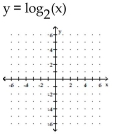
A)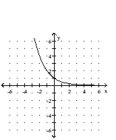
B)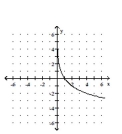
C)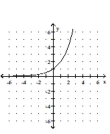
D)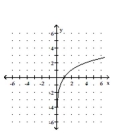

A)

B)

C)

D)


Unlock Deck
Unlock for access to all 203 flashcards in this deck.
Unlock Deck
k this deck
48
Determine the number that can be used in place of the question mark to make the equation true.

A)
B) -4
C) 3
D) 4

A)

B) -4
C) 3
D) 4

Unlock Deck
Unlock for access to all 203 flashcards in this deck.
Unlock Deck
k this deck
49
Find the value of the logarithmic function.

A) -1
B) 1
C) 0
D) 4

A) -1
B) 1
C) 0
D) 4

Unlock Deck
Unlock for access to all 203 flashcards in this deck.
Unlock Deck
k this deck
50
Find the value of the logarithmic function.
ln(1)
A) 0
B) -1
C) 1
D) e
ln(1)
A) 0
B) -1
C) 1
D) e

Unlock Deck
Unlock for access to all 203 flashcards in this deck.
Unlock Deck
k this deck
51
Graph the function.
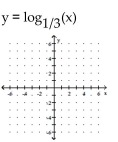
A)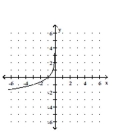
B)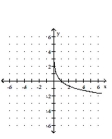
C)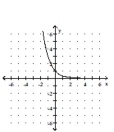
D)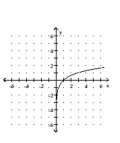

A)

B)

C)

D)


Unlock Deck
Unlock for access to all 203 flashcards in this deck.
Unlock Deck
k this deck
52
Find the value of the logarithmic function.

A) e ln(-3)
B) 1
C)
D) -3

A) e ln(-3)
B) 1
C)

D) -3

Unlock Deck
Unlock for access to all 203 flashcards in this deck.
Unlock Deck
k this deck
53
Find the value of the logarithmic function.

A) 3 ln(4)
B) 4
C)
D) -4

A) 3 ln(4)
B) 4
C)

D) -4

Unlock Deck
Unlock for access to all 203 flashcards in this deck.
Unlock Deck
k this deck
54
Solve the problem.
The decay of 517 mg of a radioactive substance is given by where t is time in years. Find the amount left after 77 years.
where t is time in years. Find the amount left after 77 years.
A) 44
B) 43
C) 501
D) 22
The decay of 517 mg of a radioactive substance is given by
 where t is time in years. Find the amount left after 77 years.
where t is time in years. Find the amount left after 77 years.A) 44
B) 43
C) 501
D) 22

Unlock Deck
Unlock for access to all 203 flashcards in this deck.
Unlock Deck
k this deck
55
Graph the function.
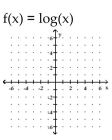
A)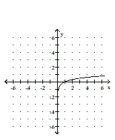
B)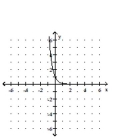
C)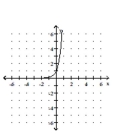
D)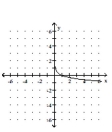

A)

B)

C)

D)


Unlock Deck
Unlock for access to all 203 flashcards in this deck.
Unlock Deck
k this deck
56
Find the value of the logarithmic function.

A) -8
B) -2
C) 8
D) 2

A) -8
B) -2
C) 8
D) 2

Unlock Deck
Unlock for access to all 203 flashcards in this deck.
Unlock Deck
k this deck
57
Solve the problem.
The growth in the population of a certain rodent at a dump site fits the exponential function where t is the number of years since 1962. Estimate the population in the year 2000.
where t is the number of years since 1962. Estimate the population in the year 2000.
A) 764
B) 1527
C) 1558
D) 728
The growth in the population of a certain rodent at a dump site fits the exponential function
 where t is the number of years since 1962. Estimate the population in the year 2000.
where t is the number of years since 1962. Estimate the population in the year 2000.A) 764
B) 1527
C) 1558
D) 728

Unlock Deck
Unlock for access to all 203 flashcards in this deck.
Unlock Deck
k this deck
58
Graph the function.
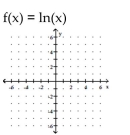
A)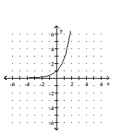
B)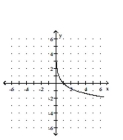
C)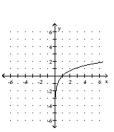
D)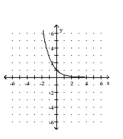

A)

B)

C)

D)


Unlock Deck
Unlock for access to all 203 flashcards in this deck.
Unlock Deck
k this deck
59
Graph the function.
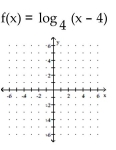
A)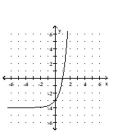
B)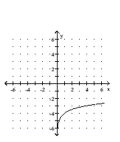
C)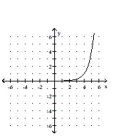
D)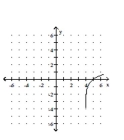

A)

B)

C)

D)


Unlock Deck
Unlock for access to all 203 flashcards in this deck.
Unlock Deck
k this deck
60
Solve the problem.
The sales of a mature product (one which has passed its peak) will decline by the function where t is time in years. Find the sales after 4 years if a
where t is time in years. Find the sales after 4 years if a  (Round to the nearest whole number.)
(Round to the nearest whole number.)
A) 54,975
B) 7797
C) 31,402
D) 15,594
The sales of a mature product (one which has passed its peak) will decline by the function
 where t is time in years. Find the sales after 4 years if a
where t is time in years. Find the sales after 4 years if a  (Round to the nearest whole number.)
(Round to the nearest whole number.)A) 54,975
B) 7797
C) 31,402
D) 15,594

Unlock Deck
Unlock for access to all 203 flashcards in this deck.
Unlock Deck
k this deck
61
Write the equation of the graph in its final position.
The graph of y = ln(x) is translated 2 units to the right, reflected in the x-axis, and then translated 7 units downward.
A) y = ln(-x + 7) - 7
B) y = ln(x - 2) + 7
C) y = -ln(x - 2) - 7
D) y = ln(x + 2) + 7
The graph of y = ln(x) is translated 2 units to the right, reflected in the x-axis, and then translated 7 units downward.
A) y = ln(-x + 7) - 7
B) y = ln(x - 2) + 7
C) y = -ln(x - 2) - 7
D) y = ln(x + 2) + 7

Unlock Deck
Unlock for access to all 203 flashcards in this deck.
Unlock Deck
k this deck
62
Write the equation as an equivalent logarithmic equation.

A)
B)
C)
D)

A)

B)

C)

D)


Unlock Deck
Unlock for access to all 203 flashcards in this deck.
Unlock Deck
k this deck
63
Use a graph or a table to find the limit.

A)
B) 1
C) 10
D)

A)

B) 1
C) 10
D)


Unlock Deck
Unlock for access to all 203 flashcards in this deck.
Unlock Deck
k this deck
64
Write the equation as an equivalent exponential equation.
 = 4
= 4
A)
B)
C)
D)
 = 4
= 4A)

B)

C)

D)


Unlock Deck
Unlock for access to all 203 flashcards in this deck.
Unlock Deck
k this deck
65
Write the equation as an equivalent logarithmic equation.

A)
B)
C)
D)

A)

B)

C)

D)


Unlock Deck
Unlock for access to all 203 flashcards in this deck.
Unlock Deck
k this deck
66
Write the equation as an equivalent exponential equation.
ln(x) = -9
A)
B)
C)
D) ln(-9) = x
ln(x) = -9
A)

B)

C)

D) ln(-9) = x

Unlock Deck
Unlock for access to all 203 flashcards in this deck.
Unlock Deck
k this deck
67
Graph the function.
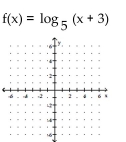
A)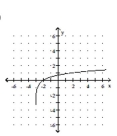
B)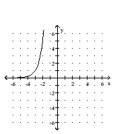
C)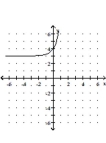
D)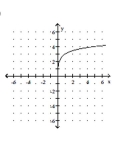

A)

B)

C)

D)


Unlock Deck
Unlock for access to all 203 flashcards in this deck.
Unlock Deck
k this deck
68
Write the equation as an equivalent exponential equation.

A)
B)
C)
D)

A)

B)

C)

D)


Unlock Deck
Unlock for access to all 203 flashcards in this deck.
Unlock Deck
k this deck
69
Use a graph or a table to find the limit.

A)
B)
C) -1
D) 0

A)

B)

C) -1
D) 0

Unlock Deck
Unlock for access to all 203 flashcards in this deck.
Unlock Deck
k this deck
70
Write the equation as an equivalent logarithmic equation.

A)
B)
C)
D)

A)

B)

C)

D)


Unlock Deck
Unlock for access to all 203 flashcards in this deck.
Unlock Deck
k this deck
71
Write the equation of the graph in its final position.
The graph of y = ln(x) is translated 3 units to the right and then 9 units upward.
A) y = ln(x + 9) + 3
B) y = ln(x + 3) + 9
C) y = ln(x - 9) + 3
D) y = ln(x - 3) + 9
The graph of y = ln(x) is translated 3 units to the right and then 9 units upward.
A) y = ln(x + 9) + 3
B) y = ln(x + 3) + 9
C) y = ln(x - 9) + 3
D) y = ln(x - 3) + 9

Unlock Deck
Unlock for access to all 203 flashcards in this deck.
Unlock Deck
k this deck
72
Find the domain of the function.
f(x) =
A)
B)
C)
D)
f(x) =

A)

B)

C)

D)


Unlock Deck
Unlock for access to all 203 flashcards in this deck.
Unlock Deck
k this deck
73
Find the domain of the function.

A)
B)
C)
D)

A)

B)

C)

D)


Unlock Deck
Unlock for access to all 203 flashcards in this deck.
Unlock Deck
k this deck
74
Write the equation as an equivalent exponential equation.
 = 0
= 0
A)
B)
C)
D)
 = 0
= 0A)

B)

C)

D)


Unlock Deck
Unlock for access to all 203 flashcards in this deck.
Unlock Deck
k this deck
75
Graph the function.
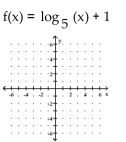
A)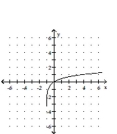
B)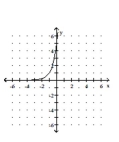
C)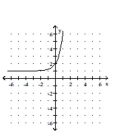
D)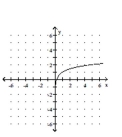

A)

B)

C)

D)


Unlock Deck
Unlock for access to all 203 flashcards in this deck.
Unlock Deck
k this deck
76
Find the domain of the function.

A)
B)
C)
D)

A)

B)

C)

D)


Unlock Deck
Unlock for access to all 203 flashcards in this deck.
Unlock Deck
k this deck
77
Graph the function.
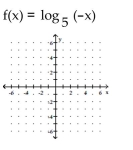
A)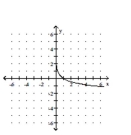
B)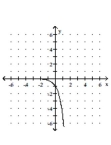
C)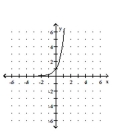
D)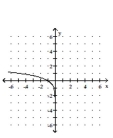

A)

B)

C)

D)


Unlock Deck
Unlock for access to all 203 flashcards in this deck.
Unlock Deck
k this deck
78
Find the domain of the function.

A)
B)
C)
D)

A)

B)

C)

D)


Unlock Deck
Unlock for access to all 203 flashcards in this deck.
Unlock Deck
k this deck
79
Find the domain of the function.

A)
B)
C)
D)

A)

B)

C)

D)


Unlock Deck
Unlock for access to all 203 flashcards in this deck.
Unlock Deck
k this deck
80
Graph the function.
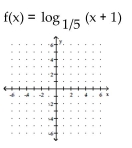
A)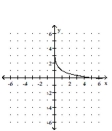
B)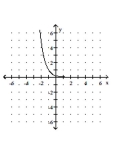
C)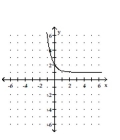
D)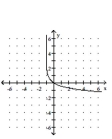

A)

B)

C)

D)


Unlock Deck
Unlock for access to all 203 flashcards in this deck.
Unlock Deck
k this deck


